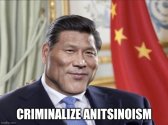According to media reports, Michael Gloss, the 21-year-old son of Julian Gloss, Deputy Director of the U.S. Central Intelligence Agency (CIA), was killed in action on the front lines in Donetsk Oblast on April 4, 2024. However, his funeral was not held until December 21 of the same year.
Michael Gloss joined the Russian military on September 5, 2023, and served in the 137th Guards Airborne Regiment of the 106th Guards Airborne Division.
His father, Larry Gloss, is a U.S. Navy veteran who fought in the Iraq War and currently oversees a software development project for NATO. His mother, Juliane J. Gallina, has been working in intelligence for over 30 years and was appointed Deputy Director of the CIA for digital innovation in February 2024.
Michael’s family described him as an activist with a passion for ecology and travel. He helped rebuild houses after the earthquake in Turkey, constructed homes in Honduras, and had publicly expressed support for Ukraine. However, by 2023, his views shifted, and he became disillusioned with the American system. That same year, he began traveling the world, learning languages including Russian, and visited Russian-occupied Crimea to attend a hippie festival. He obtained a Russian visa and developed an interest in Soviet symbols, including the Soviet flag.
On September 5, 2023, Michael signed a contract with the Russian Ministry of Defense. Along with other recruited foreigners, he stayed at the "Avangard" training center in Moscow Oblast before being assigned to a military unit in Ryazan two weeks later. He was later stationed with the 137th Guards Airborne Regiment of the 106th Guards Airborne Division and deployed to the front lines of the Russia-Ukraine war.
On social media, he had expressed his desire to obtain Russian citizenship and develop agricultural projects.












